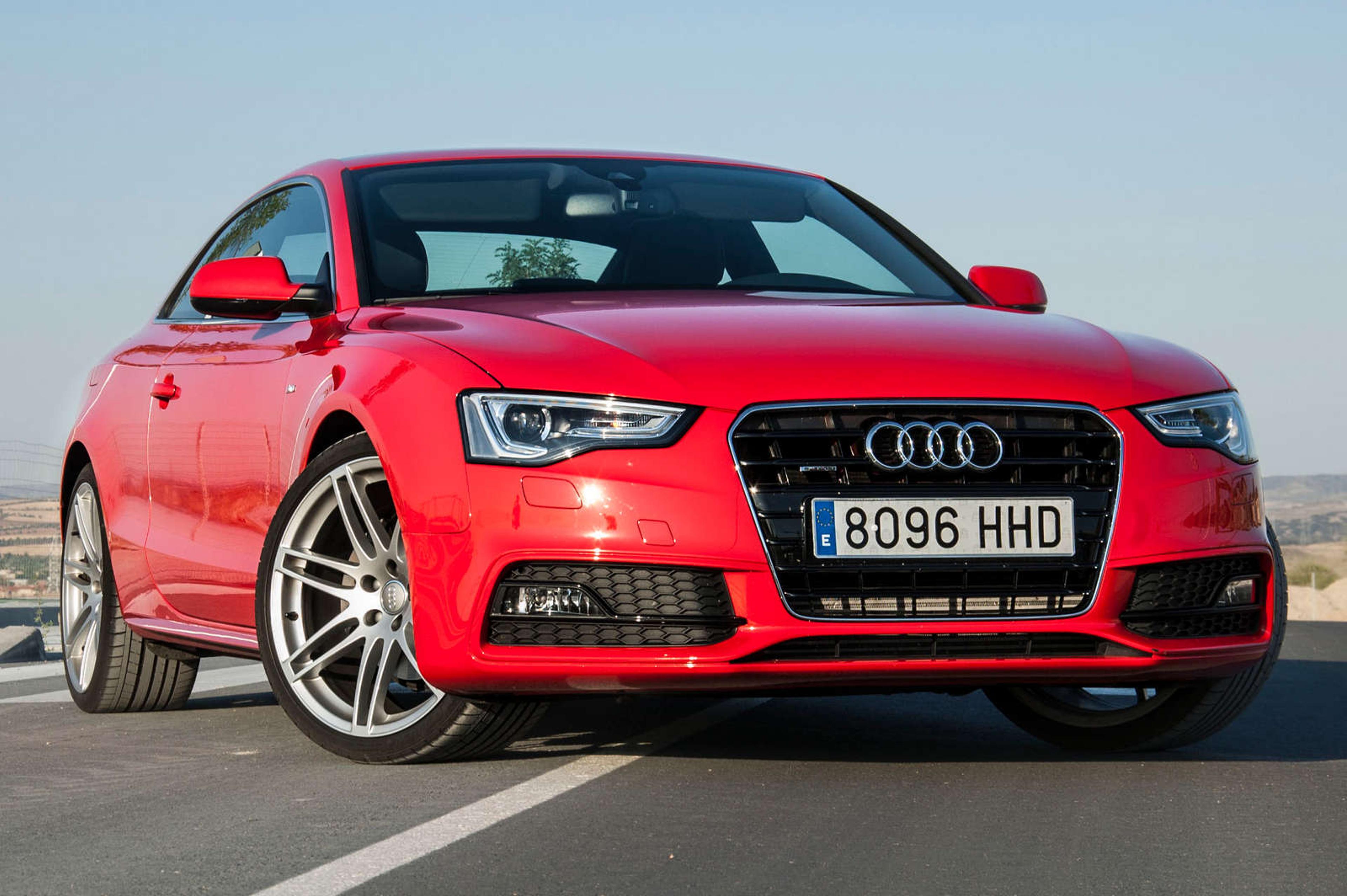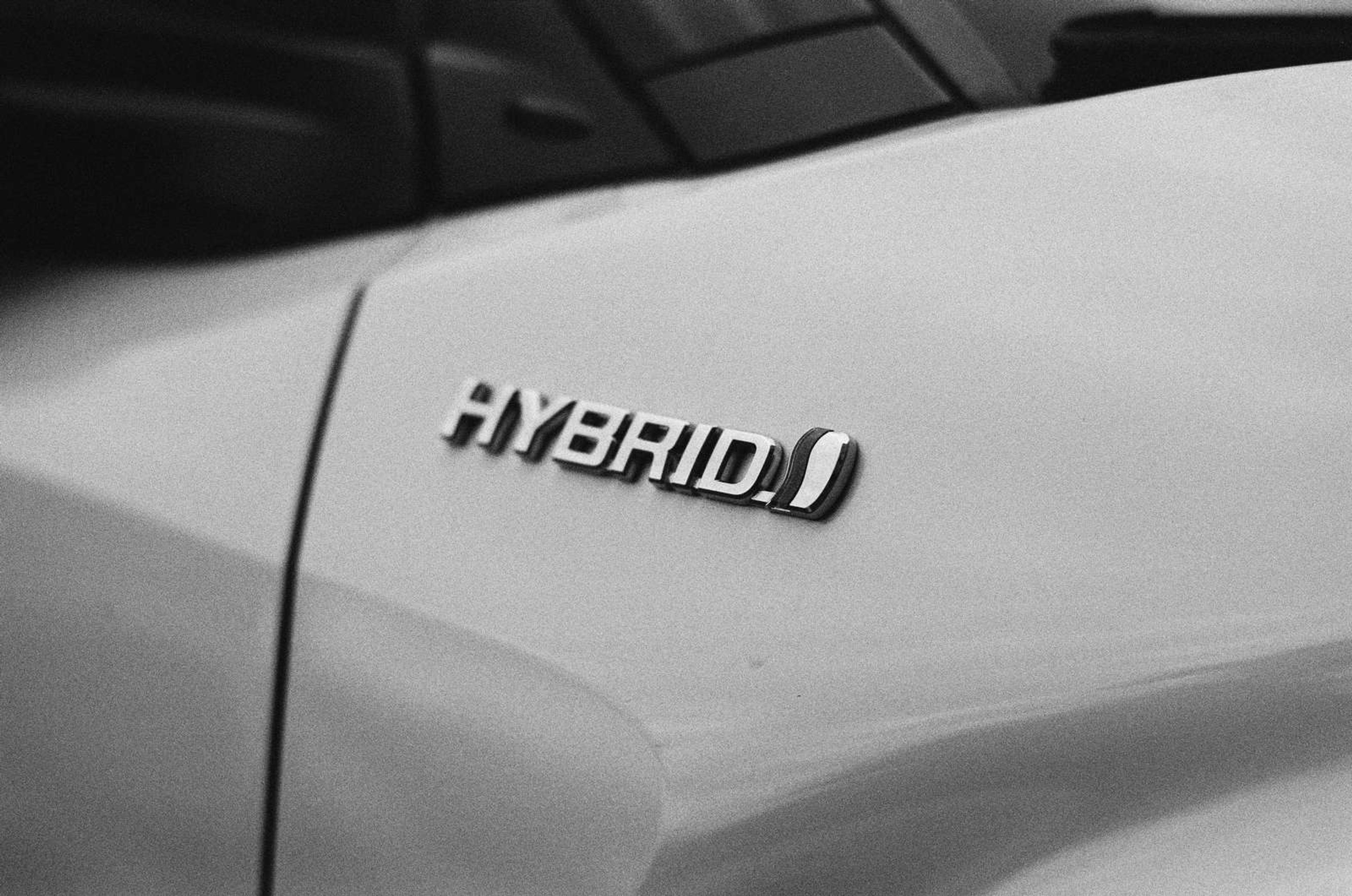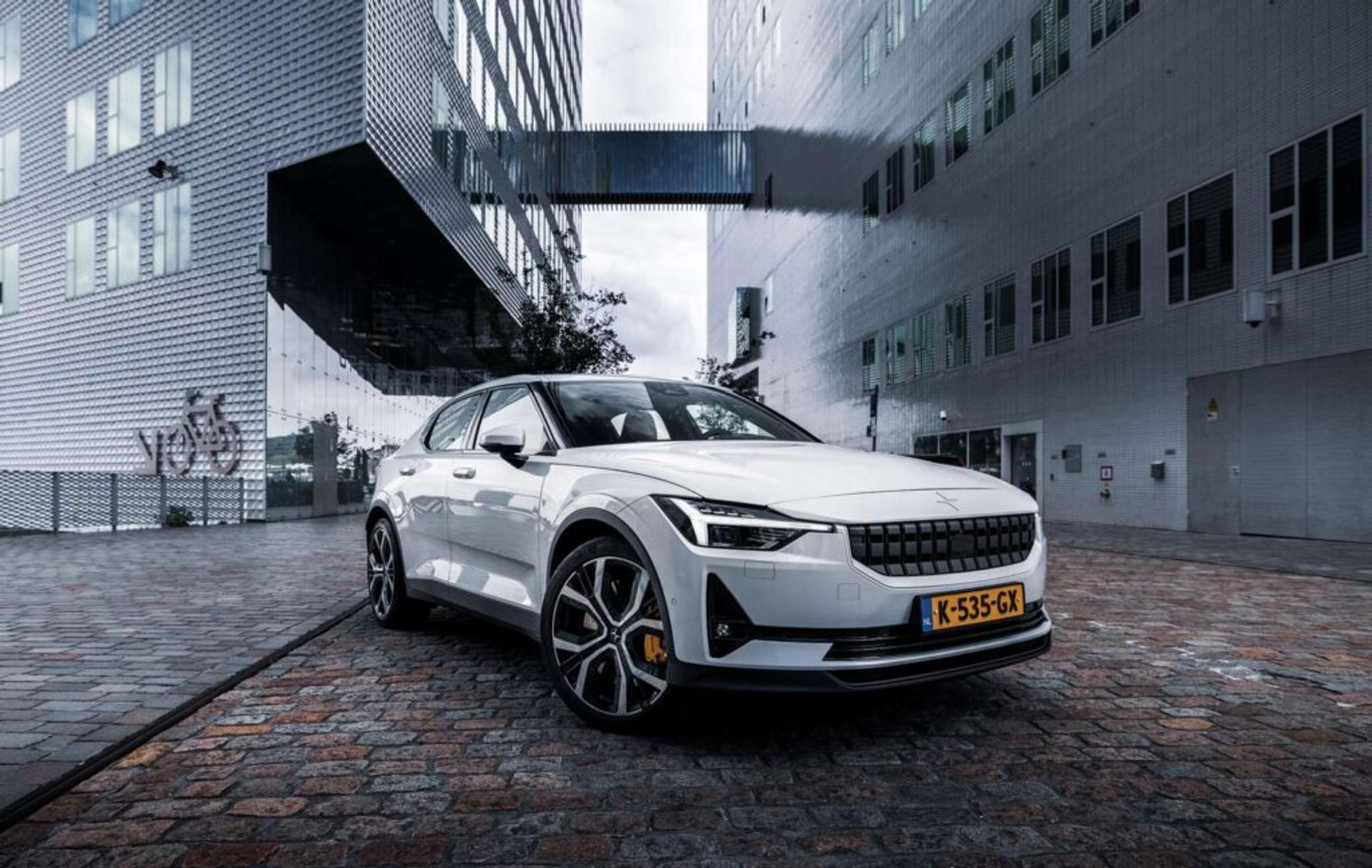20/11/2023
Gasoline vs. diesel vs. hybrid vs. EV: Which used car option to choose

Aivaras Grigelevičius

Gone are the days when the used car market was all gasoline (petrol) and diesel engines. Today, used car engine options include at least four different variations of gasoline engines, extremely fuel-efficient diesel engines, and the newest addition of the electric powertrain has only added to the complexity of choices.

Used cars have dark secrets
Reveal them all! Just enter a VIN code and click the button:
At first glance, the environmentally friendly electric vehicle (EV) may seem like the go-to choice when buying a car. But do not rush to the stargates without careful consideration. EVs have their advantages and irritating drawbacks, just like gasoline, diesel, or even hybrid engines.
Let’s thoroughly examine all available options to help you choose a used car.
How to choose a fuel type when buying a car?
You can find many tips on how to buy a used car in today’s market, but most of them are unnecessarily complicated. In reality, the first thing you need to do is to compile a straightforward checklist.
While delving into complex specifics is not required, it’s beneficial to estimate your monthly mileage, pinpoint your driving conditions and environment, establish a clear fuel budget, and decide how you’re going to pay for a used car.
For instance, are you open to used car financing options, which could lead you to newer, more expensive purchases, or do you prefer to pay the full price?
Creating a reasonable list of requirements can help you differentiate between the cars you desire and those you can actually afford.
Let’s break down a simple scenario based on statistics. According to the U.S Federal Highway Administration, the average family in the U.S spends $150-200 on fuel and covers approximately 1,000 miles a month. This data suggests that the average family purchases vehicles that are not very efficient. For instance, if you drive a vehicle with a fuel economy rating of 30 mpg, you will need approximately $110-115 for fuel to cover 1,000 miles in a month.
So, if you’re aiming to extend your range on one fuel tank and ultimately reduce fuel expenses, you should prioritize fuel-efficient hybrids, which could achieve at least 40 mpg in mixed driving, or even electric vehicles, as they are well-suited for owners who seek efficiency and low costs.
The variety of options and their comparison
Cars come in a variety of engine types, including gasoline, diesel, hybrid, and electric models. Each of these engine types has distinct attributes that can be fully leveraged in specific environments.
For example, petrol-powered cars effectively provide a dynamic driving experience in urban and highway settings, diesel vehicles excel in long-distance commuting, and EVs have become an excellent choice when supported by a well-developed charging infrastructure.
Let’s delve into the differences between these types of engines in cars.
Gasoline cars

For decades, pure gasoline-powered cars have remained the default choice for the majority of motorists, and they still represent the most practical option for many vehicle buyers. This is especially true when you consider the impressive strides that modern gasoline engines have made in terms of fuel economy.
However, there are some additional conditions. Like in those too-good-to-be-true advertisements.
Today, used car buyers can choose from various petrol-powered engines, including naturally aspirated, turbocharged, and electrified options with mild-hybrid systems. While all of these systems serve to propel cars forward, they differ significantly in terms of performance, refinement, reliability, and, of course, fuel economy.
The most reliable option is the naturally aspirated engine because it lacks additional components that may keep your local mechanic busy. However, when it comes to fuel efficiency, the mild-hybrid version takes the lead. Depending on the vehicle, mild-hybrid engines can improve fuel economy by anywhere from 6% to 20%, depending on how heavy your foot is.
Advantages and disadvantages of gasoline vehicles
The biggest advantages of a gasoline engine lie in its familiarity, ease of use, and wide selection of car types, including coupes, hatchbacks, station wagons, SUVs, and even 4×4 vehicles.
However, there are drawbacks that can sometimes overshadow the benefits. Most importantly:
- Gasoline engines can be oil-hungry. While it’s normal for petrol engines to consume some oil, improper maintenance can lead to a dramatic increase in oil consumption.
- They typically require more fuel. In combined city and urban driving, you can get good results with an appropriate engine capacity and power ratio.
Manufacturers often opt for tiny capacity engines in family-oriented vehicles like the Ford Bronco Sport, claiming impressive economy figures. However, in real-world conditions, it’s challenging to achieve these claimed economy figures.
Small engines need constant effort to generate power and can end up consuming as much fuel as larger engines. They make great additions in small, lightweight passenger cars like the Ford Fiesta or Volkswagen Golf but are not great in larger vehicles like the Honda CR-V or Toyota Camry.
Diesel cars

For decades, Europe was the only region in the world where passenger cars with diesel engines had a significant market share. This is probably due to political and marketing reasons: diesels were thought to lower emissions and help reduce pollution. Buyers have also been willing to ignore unpleasant engine vibrations, excessive noise, or higher maintenance costs due to impressive fuel economy.
Although diesel engines are often considered one of the best car types in terms of fuel efficiency, their reputation has taken a hit, primarily due to the emissions cheating scandal involving a certain manufacturer we won’t name.
Advantages and disadvantages of diesel cars
Buying a diesel car makes the most sense if you need to cover hundreds of miles every single day or if you’re looking to buy a pickup truck for towing heavy loads. In these scenarios, opting for a used car with a diesel engine can be a rational choice because the high yearly mileage and fuel economy can offset higher maintenance costs.
However, in other cases, diesel engines aren’t a great choice. Due to stricter emissions regulations, cars with diesel engines require an expensive exhaust system to reduce toxic particles. In low-speed, congested city scenarios, these systems can become clogged rather quickly.
Furthermore, in colder weather, diesel engines take longer to reach their optimal working temperatures compared to gasoline engines. This makes them less fuel-efficient unless they have time to warm up and operate efficiently, such as driving on a highway outside the city at a constant speed. Short trips around town or constant queuing in traffic jams isn’t great with a diesel engine.
Hybrid cars

Hybrid cars represent an important category within the diverse landscape of car types, distinguished by their dual powertrain systems. These vehicles combine a traditional internal combustion engine, often powered by gasoline, with an electric motor and a battery pack.
Today, buyers can choose from two types of hybrids: self-charging hybrids and plug-in charging hybrids:
- Self-charging hybrids have quite small battery pack capacity, which works as an assistant to a gasoline engine. The hybrid system switches off the engine and uses electric drive when rolling down the road, braking, or driving at a steady but low speed.
- Whereas the plug-in charging hybrids have a much bigger battery pack and the ability to recharge depleted batteries while driving, at home, or even at public charging stations.
This unique combination allows you to travel on electric power from 10 to 50 miles. When the batteries deplete, the gasoline engine becomes the main source of power, and the vehicle keeps working as a regular hybrid.
This combination also offers the extended range of a combustion engine for longer journeys. The versatility of hybrid cars makes them a compelling choice for environmentally-conscious drivers who aim to reduce their carbon footprint without sacrificing the practicality and convenience associated with traditional car types.
Advantages and disadvantages of hybrids
Hybrids are often praised for their lower CO2 emissions and great fuel economy in urban environments. When gasoline and electric motors work together seamlessly, they offer up to 50% better fuel economy compared to similar gasoline engines. However, if you opt for a more expensive plug-in hybrid and use electric power for daily trips, monthly fuel costs could be reduced to the minimum.
These could be compelling arguments to buy hybrid or plug-in hybrid vehicles, but this advanced technology has its price.
Due to higher demand, used hybrid cars are much more expensive than pure petrol-powered alternatives. Furthermore, after a few years of use, battery packs lose their full charge capacity, resulting in worse electric range and, in some cases, an expensive change of battery modules or even the whole battery pack.
Electric vehicles (EVs)

Unlike traditional gasoline or diesel vehicles, EVs feature electric motors powered by rechargeable battery modules, eliminating the need for internal combustion engines and, of course, tailpipe emissions.
Over the past decade, manufacturers have shown notable advancements in battery chemistry technology, which sort of helps eliminate range anxiety, but only for buyers of new electric cars. It’s quite a different story with used EVs because most affordable electric cars will have smaller battery packs, limited range, and technology. Thus they’re mostly only good as city cars.
Advantages and disadvantages of EVs
The most significant and apparent advantages of EVs include their silent operation, smooth driving, great performance, and remarkably affordable running costs if you have your own power source (e.g., solar panels at home). Depending on your setup, charging your EV at home could cost as little as $2 for every 1,000 miles.
However, while EVs offer several eye-opening benefits, they still heavily rely on a charging network infrastructure to meet your needs. This shift will inevitably require you to change your approach to vehicle ownership, as EV owners will need to adapt to their charging requirements, not the other way around.
Total cost of ownership
While the upfront price of a car often takes center stage, it’s important to remember that upon the car’s arrival at your home, a new set of ongoing costs will come into play.

Depreciation
The common misconception is that all new cars depreciate at a similar rate. However, vehicle depreciation not only depends on the make and model but also on the engine type.
Today, gasoline, hybrid or diesel powered vehicles have the highest residual value because they offer the simplest way to own a vehicle. For example, after five years of ownership, the Toyota RAV4 will retain approximately 50-55% of its original value, depending on whether it has a full hybrid or plug-in hybrid powertrain.
EV buyers today face the most significant depreciation. Since battery technology is constantly evolving, each new EV in the market comes with improved battery chemistry, better range, and overall efficiency, making older models less competitive and attractive to potential buyers.
Let’s take a look at an example. A brand-new Audi e-Tron GT today costs an average of $120,000, while a two-year-old, low-mileage example costs an average of $65,000. In other words, it has lost approximately 45% of its value after just two years.
Of course, this is likely to change in the future (and may be different even now, depending on your location).
Insurance
Usually, insurance premiums are calculated based on the make, model, your age, driving history, living location, and, of course, the fuel type of your car. So if you’re looking for a car that’s cheaper to insure, look for something gasoline-powered.
Based on analysis by Forbes Advisor, the least expensive cars to insure were the Honda CR-V, Jeep Wrangler, Subaru Forester, or Hyundai Tucson – cars with traditional gas engines. Their average insurance premium was $1,600.
What makes this analysis intriguing is that the same cars with hybrid or plug-in hybrid powertrains cost on average $100 to $200 more to insure, while the insurance cost for electric cars could be as high as $4,000. For example, the average annual insurance premium for the Porsche Taycan is $4,683 and for the Tesla Model S is $3,702. As a reference, you can insure the Audi R8 supercar for $4,079.
Fuel cost
Fuel costs are one of those expenses that you’ll notice instantly every time you visit a fuel or charging station. Let’s take a quick look at how much it costs to fuel different types of vehicles.
- Gasoline-powered vehicle fuel cost. Such cars as the Toyota Corolla have an economy rating of 31 mpg. If your yearly mileage is 12,000 miles, your fuel cost will be approximately $1,200.
- Diesel-powered vehicle fuel cost. If you’re willing to buy a car with a diesel engine, like the Chevrolet Tahoe SUV, which has an average economy rating of 25 mpg, in a year you will spend approximately $2,100.
- Hybrid vehicle fuel cost. Most modern hybrid vehicles today are fuel-efficient. Even family-oriented SUVs, like the Honda CR-V, average 38 mpg. Based on this, it will cost you $1,000 in fuel.
- EV charging cost. The charging cost of an EV depends on the cost of electricity in your home and at charging stations. However, if 1 kWh costs $0.30, it will cost approximately $2,500 to cover 12,000 miles.
Maintenance
Regular annual maintenance is essential to ensure the smooth operation of your vehicle. However, it’s important to stress that maintenance costs not only differ between makes, models, or engine sizes, but fuel type also makes a significant difference.
In this area, EVs have a clear advantage over other fuel types. Electric vehicles are far less complex, with fewer moving parts, making them easier and cheaper to maintain. Over a five year ownership period, the necessary maintenance tasks typically include changing tires, brake and transmission fluid, flushing the cooling system, and replacing the 12V battery, amounting to an estimated $500-600 in total.
When it comes to gasoline, hybrid, or diesel-powered vehicles, the maintenance cost can range from $200-300 to as much as $1,000 annually, depending on the service location and the price of replacement parts. For instance, RepairPal indicates that the average cost just for an oil change in a BMW X5 ranges from $176 to $202, while the same service for a Toyota Corolla varies between $115 and $129.
Environmental considerations
With many advocating curbing car emissions as a solution to environmental issues, it’s crucial to acknowledge that fixes in the transport sector alone are not enough.
While certainly better than traditional vehicles, even electric cars aren’t safe for the environment. For example, it’s true that they produce no tailpipe emissions, but their production relies on rare-earth materials and energy-intensive lithium batteries, which can cause significant harm. Additionally, whether electricity is good depends on how it’s generated.
That said, short of not having a car, owning an EV or Hybrid seems to be the best we can currently do for the environment, particularly when it comes to global warming.
Future-proofing your investment
Looking at the way the vehicle market develops, it becomes evident that the most prudent strategy for safeguarding your investment in the long run is to opt for electric, hybrid, or other fuel-efficient vehicles.
These options not only align with the evolving environmental and regulatory landscape but also promise greater resilience against fluctuating fuel prices and the inevitable transition towards sustainable transportation.
Furthermore, do not forget the concept of what a good used car is and how important it is to consider factors such as maintenance, mileage, and accident history when seeking one.

Check your registration number
Avoid costly problems by checking a vehicle's history. Get a report instantly!
Frequently asked questions

Article by
Aivaras Grigelevičius
Aivaras has been excited about cars since he was a little kid. Later, this passion for drivable objects (and everything that surrounds them) grew into work as an automotive journalist. Since then, Aivaras has written for several different magazines, covering anything with an accelerator pedal. He has a soft spot for cars with an Alfa Romeo badge.
